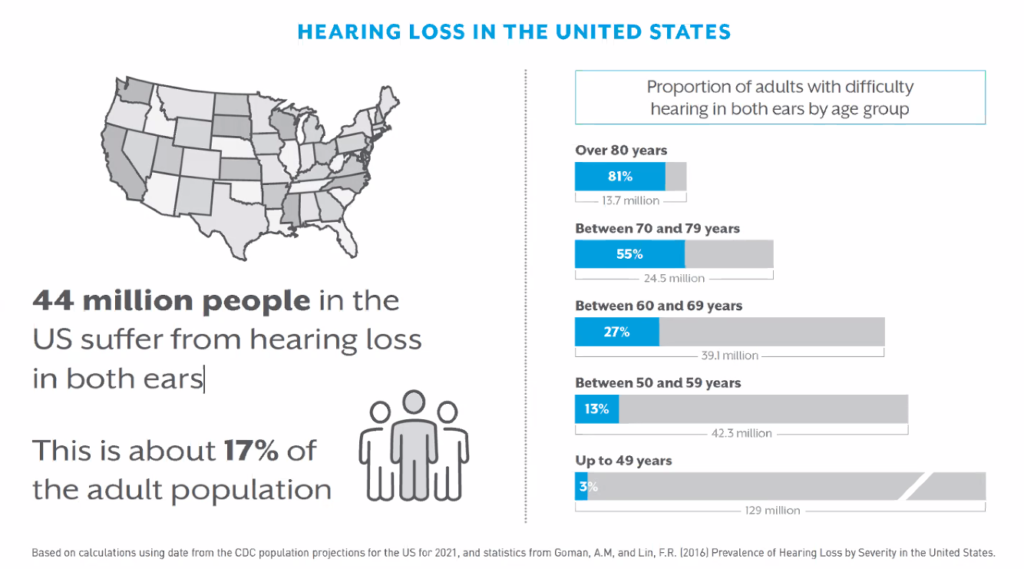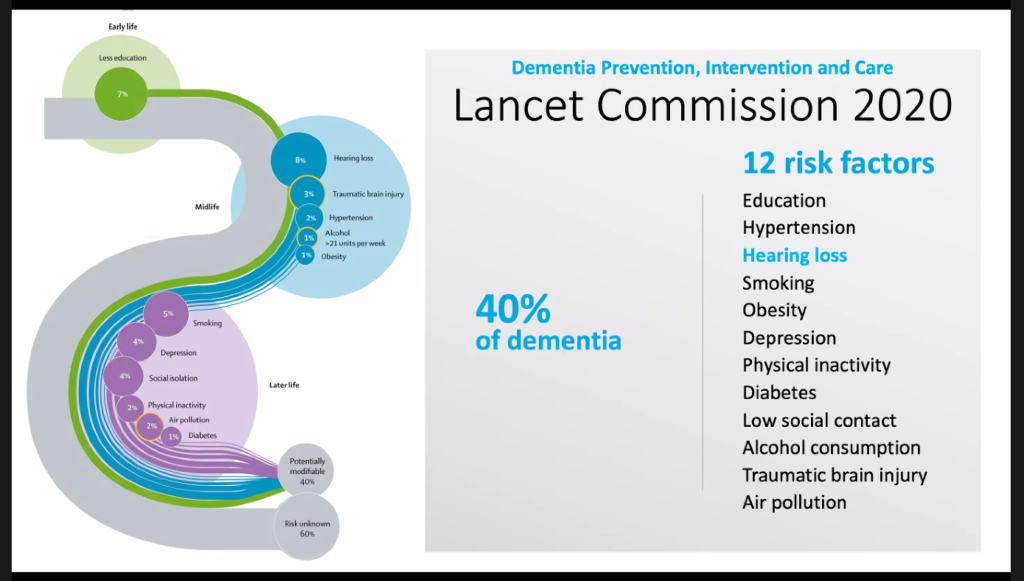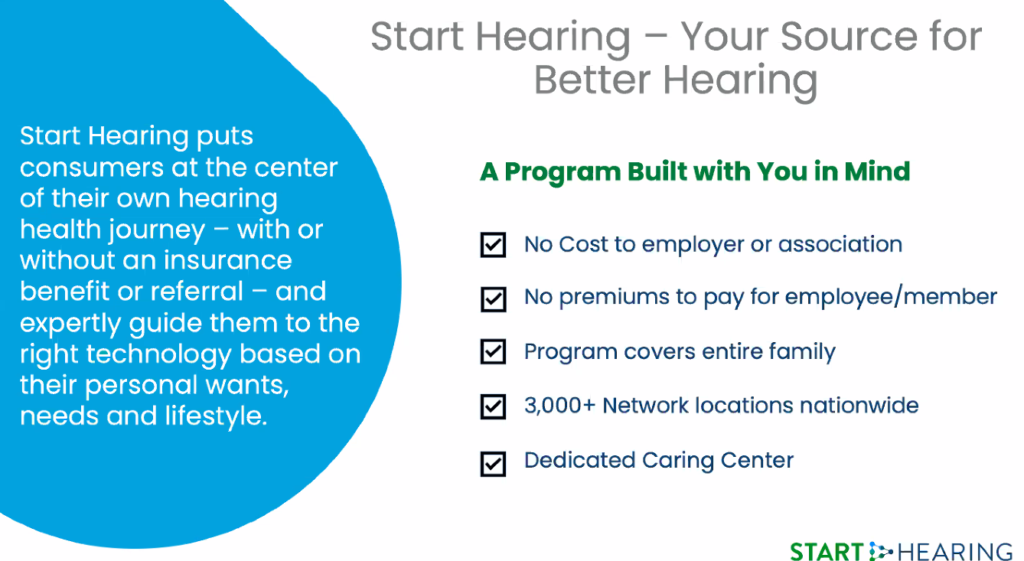“It’s not just about increasing the volume. It’s about increasing the nutrients to your brain.” ~Dr. Archelle Georgiou
When a person suffers from hearing loss, more could be at play than just not being able to hear. During our webinar “Hearing and Health: An Opportunity for Integrated Management”, we learned from Dr. Georgiou (Starkey Hearing Technologies) that there is a significant crossover between hearing and the individual’s wellbeing.
Hearing loss effects 44 million people in the US. Yet only 1/3 of those people have a hearing aid. On average, a person will wait 5 to 7 years before seeking help about their hearing loss.

There are many chronic health conditions associated with hearing loss. Dr. Georgiou focused on some of the main issues, including loneliness/depression and dementia. Loneliness effects 1 in 5 people with hearing loss. Individuals end up avoiding situations when they know they won’t be able to hear and will lead to frustration for them and those around them. After awhile, the loneliness can pose as a threat to your mind and your body, which then could lead to depression.
Our brain is much like the RAM on a computer. It has a working memory. Individuals with hearing loss are using all their working memory to literally figure the words coming out of someone’s mouth. Therefore, there is little, or no working memory left to form new memories and learn new information. As you can see on the diagram below, hearing loss is a top contributor to dementia. On top of that, the amount of key information that can be missed is huge. Patients with hearing loss can miss out on what their care provider tells them – diagnosis, instructions, medications. And like almost everything else, the pandemic has exacerbated the effects of hearing loss. Mask usage only makes this challenging situation worst.

The goal is to decrease the stigma that is associated with hearing loss and hearing aids. Instead of focusing on the not being able to hear, the focus must switch to the major health conditions that come along and are harder to manage with hearing loss. Employers can help! Make sure hearing loss programs are included in insurance plans, along with making sure your employees are aware of what is available to them.
Starkey has programs in place for hearing loss, such as their Start Hearing program. Along with a hearing aid that is innovative and serves as a multifunctional device. It actually acts like a Fitbit. (See picture below.) It’s barely noticeable once in a person’s ear. Tools like these will help take the stigma away from hearing loss and are a crucial step moving forward.


Post a Comment